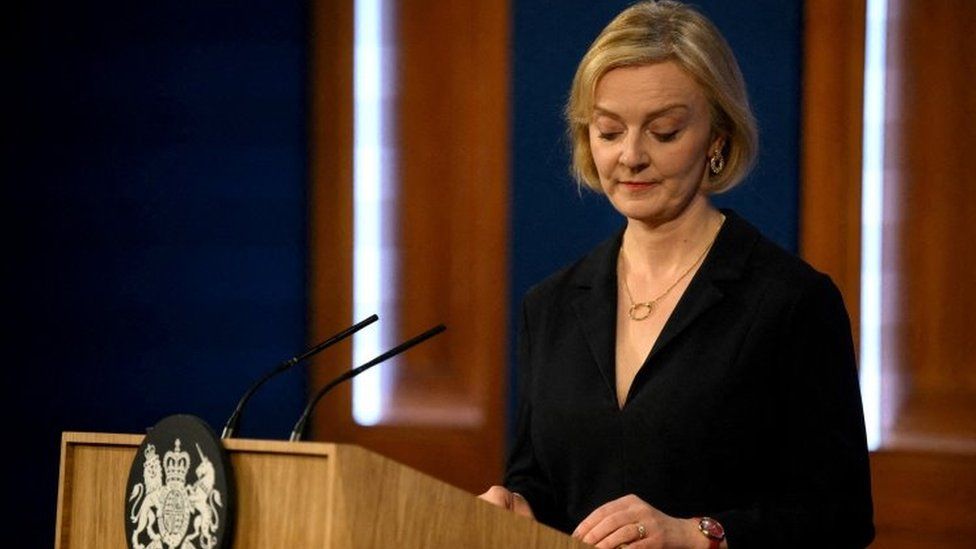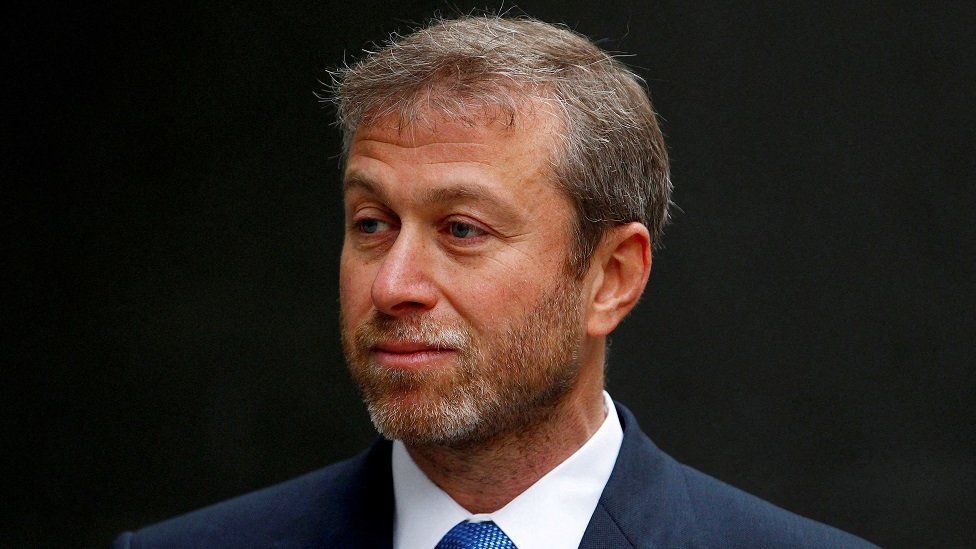After 45 days as prime minister, the majority of which was spent clinging on for her political life, Liz Truss announced Thursday that she is resigning. Now she is set to become the shortest-serving occupant of Downing Street in 300 years of British history.
By the end, Truss had grown so unpopular that her fellow party lawmakers were publicly contemplating plans to replace her.
Let us walk you through what happened
Why was Truss so unpopular?
By the end of her tenure, according to a YouGov poll, Truss’s net favorability stood at minus-70 percent. If that figure had continued its downward slide, she would have been on track to overtake Russian President Vladimir Putin, who has a net favorability rating of minus-84 percent among members of the British public.
Truss became prime minister on Sept. 6 after being elected by members of the Conservative Party to replace Boris Johnson as their leader. Her first two weeks included the death of Queen Elizabeth II and were politically muted while the country entered a period of mourning.
But on Sept. 23, her finance minister, Kwasi Kwarteng, made a fatal misstep: Without any warning, he unveiled a significant shift in the country’s economic strategy, promising to slash taxes for the highest earners and biggest corporations — with no plans to pay for it.
Almost immediately, the British pound’s valuation tanked, the United Kingdom’s central bank was forced to hike interest rates, and the cost of taking out mortgages soared. Inflation — already at record highs — raised the cost of living further, shredding the Conservative Party’s reputation for fiscal responsibility. Some working-class voters who were drawn to Conservatives by their embrace of Brexit were turned off by a renewed sense that the party represented only the interests of financial elites.
Truss made so few public appearances in the ensuing days that one of her ministers, standing in for her during a parliamentary grilling, told lawmakers that the prime minister was “not under a desk” hiding — a reassurance that succeeded solely in prompting people to picture her doing just that.
How many officials were fired or quit under Truss?
Three. Including 50 percent of her most senior ministers in a single week.
First went Kwarteng, the architect of Truss’s vision for economic growth and a longtime political ally. Truss fired him Friday and replaced him with Jeremy Hunt, Britain’s fourth finance minister in as many months. With the markets roiling in the wake of Kwarteng’s disastrous “mini-budget,” the decision did not come as a surprise for a prime minister searching for ways to stem the bleeding of her political authority.
Then went Home Secretary Suella Braverman, who quit Wednesday. This resignation was unexpected: Ostensibly, it was over a technical breach of the ministerial code after Braverman sent secret documents from her personal email. But in a blistering resignation letter, Braverman made clear she was unhappy with the direction of Truss’s government.
British Prime Minister Liz Truss fired her finance minister Kwasi Kwarteng on Oct. 14, and scrapped part of her big unfunded tax cut plans. (Video: Reuters)
If losing two ministers in Britain’s four Great Offices of State in less than a week wasn’t enough drama, British outlets reported Wednesday that Truss’s top aide, Jason Stein, had been suspended after anonymously criticizing fellow Conservative lawmakers to reporters. Truss’s press secretary refused to comment on staffing matters Wednesday but said the prime minister believed certain media briefings about parliamentary colleagues had been “completely unacceptable.”
What did a fracking vote have to do with low confidence in Truss?
Truss’s final full day in office was marked by a chaotic vote on fracking.
Spotting the chance to strike a political blow, the opposition Labour Party put forward a motion Wednesday in Parliament to ban fracking, a controversial issue for the Conservatives.
The party initially attempted to turn the vote into a show of strength for Truss’s government, threatening lawmakers with expulsion from the party if they did not vote against Labour’s motion.
British Prime Minister Liz Truss tried to reassert authority over her Conservative Party Oct. 19, amid reports that she could be ousted.
But as reports of growing dissent within the party mounted, party leaders appeared to row back on the threat shortly afterward. The result was a scene of pure chaos, with few lawmakers clear on the vote’s significance. Conservative lawmakers were “manhandled” into the parliamentary chamber to support the government, the Daily Telegraph reported.
The vote was eventually held at 6:59 p.m., with 40 Conservative abstentions — which, for some reason, included Truss herself.
In a live television interview that evening, a visibly seething Conservative lawmaker, Charles Walker, described the situation as an “absolute disgrace,” blaming “talentless” colleagues for supporting Truss’s bid to become leader — “not because it’s in the national interest, but because it’s in their personal interest to achieve ministerial position.” The public’s view of how the party handled itself is so dim that as many as half of all Conservative lawmakers could lose their seats in a general election, he said.
What’s next for U.K. politics?
The Conservative Party will have a new leader — and Britain, a new prime minister — installed next week after sweeping changes to existing rules that allow for a speedy contest.
Speaking to reporters Thursday afternoon, Graham Brady, chair of the Conservative Party’s powerful 1922 committee, said that anyone who wants to put their name forward for the leadership contest will need nominations from at least 100 Conservative members of Parliament. In the last contest, prime minister hopefuls only needed 20 nominations to get to the next stage. That election took two months and involved multiple rounds of votes among Conservative Party lawmakers before two finalists competed for the support of the broader party faithful.
All stages of this contest will be concluded by Oct. 28.
The parliamentary math means that there could be a maximum of three candidates that go forward. If needed, members of Parliament will whittle that number down to two. The final two will then be voted on by the 170,000 dues-paying members of the Conservative Party. This vote will be conducted online.Brady told reporters Thursday that nominations are open now and will close Monday at 2 p.m.
Liz Truss will remain in her post until her successor is chosen.
The party is bitterly divided and it’s unclear who will emerge victorious. The names being bandied about as possible contenders include former finance minster Rishi Sunak, who was runner up to Truss in the last leadership contest but isn’t loved by the grassroots; cabinet minister Penny Mourdant, who isn’t well known but came in third last time; the popular defense secretary Ben Wallace who once said he didn’t want the top job; and — yes — even former prime minister Boris Johnson.
What has lettuce and tofu got to do with the U.K. drama?
Vegetables have entered the stage, people.
A day before quitting as Truss’s minister, Home Secretary Braverman lambasted the “Guardian-reading, tofu-eating wokerati” while speaking in Parliament. Her comment, meant to insult left-leaning liberals, spawned songs, online memes and jokes, adding fuel to culture wars.
And as Truss’s credibility crumbled, British newspaper columns poked fun at her, predicting that her career would have “the shelf-life of a lettuce,” which is about 10 days. One tabloid, the Daily Star, went a step further, setting up a 24-hour live video of a head of lettuce (at times dressed in a wig or glasses) next to a picture of Truss, asking viewers which would wilt first.
On Thursday at lunchtime, the lettuce won.
![]()




























